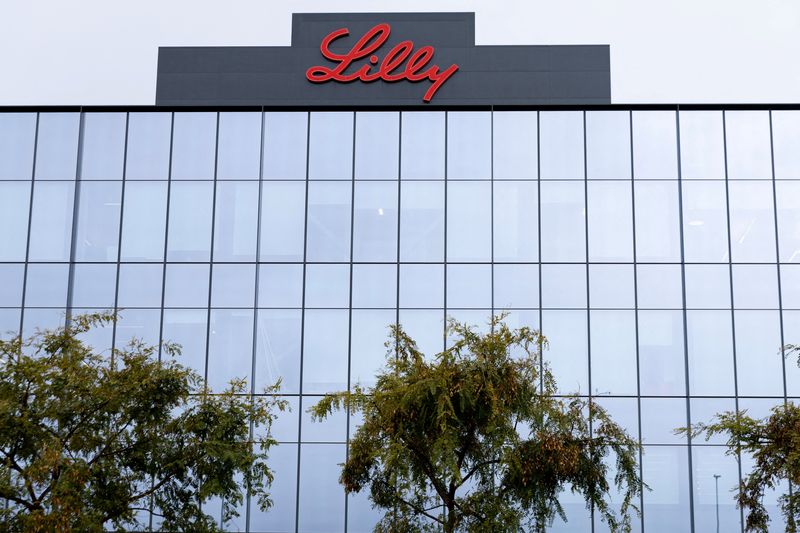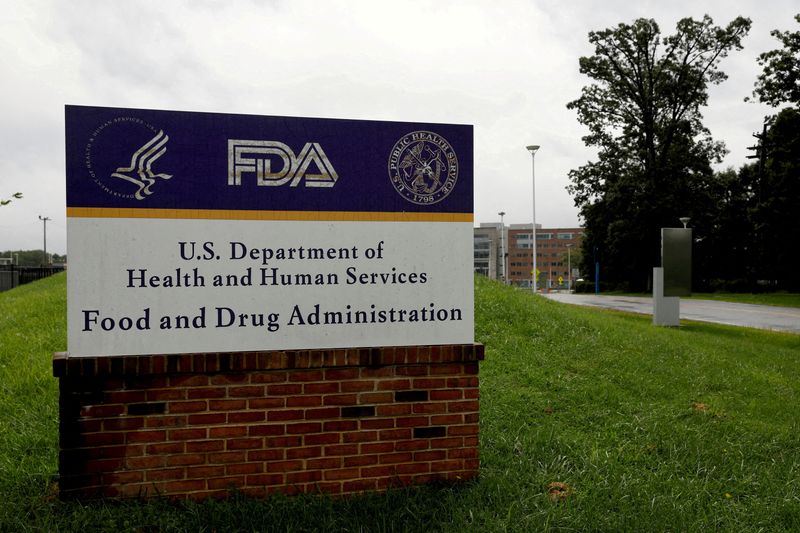By Julie Steenhuysen and Mariam Sunny
(Reuters) -The U.S. Food and Drug Administration on Tuesday approved Eli Lilly (NYSE:LLY)'s treatment for early Alzheimer's, making it the second therapy for slowing progression of the brain-wasting disease that will be available to U.S. patients.
The approval for donanemab, to be sold under the brand name Kisunla, followed the recommendations of the agency's outside experts, who unanimously backed its use in patients with early Alzheimer's disease, saying the benefits of the drug outweighed its risks.
“This is real progress," said Joanne Pike of the Alzheimer’s Association. “Having multiple treatment options is the kind of advancement we’ve all been waiting for — all of us who have been touched, even blindsided, by this difficult and devastating disease.”
Like Eisai and Biogen (NASDAQ:BIIB)'s rival drug Leqembi, which was approved a year ago, donanemab is designed to clear an Alzheimer's-related protein called beta amyloid from the brain.
A key differentiating factor for donanemab is the drug's finite dosing, which allows patients to stop taking the treatment once brain scans no longer show amyloid plaques.
Lilly priced its drug at $695.65 per vial, or about $32,000 for 12-months of treatment consisting of 13 infusions. That's slightly higher than Eisai's Leqembi, which costs $26,500 a year.
BMO analyst Evan Seigerman said the price reflects the fact that patients can stop treatment versus chronic treatment with Leqembi.
"The details of how it will play out in clinical practice are still unclear, but I think it will save a lot of money and patients will like that a lot better," said Dr. Erik Musiek, a Washington University neurologist at Barnes-Jewish Hospital.
"I think that, coupled with the monthly dosing, will make this an attractive option," he added.
In Lilly's large, late-stage trial, donanemab slowed the progression of memory and thinking problems by 29% compared with a placebo. It also caused brain swelling in nearly a quarter of patients and brain bleeding in nearly a third, but most cases were mild.
As it did for Leqembi, the FDA placed its strongest "boxed" safety warning on donanemab's prescribing label, flagging the risk of potentially dangerous brain swelling and bleeding.
One key difference is that donanemab will require five MRI scans to check for side effects, while Leqembi requires four, which could be an advantage for the Eisai drug in centers where such scans are scarce, RBC Capital analyst Brian Abrahams said in a research note.
Eisai and Biogen have started submitting data to the FDA to support approval of a monthly maintenance dose to be given as an IV infusion, as well as a weekly injected version of Leqembi that patients could receive at home.
Lilly's drug is expected to be used mostly by patients enrolled in the U.S. government's Medicare health plan for people age 65 and older. Medicare last year began covering Alzheimer's drugs that receive standard FDA approval.

Morningstar analyst Damien Conover said he expects Lilly's drug to generate peak annual sales of over $5 billion, and "a fairly evenly split market between donanemab and Biogen’s Leqembi."
More than 6 million Americans have Alzheimer's disease, according to the Alzheimer's Association.
